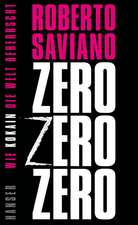Death Anxiety and Clinical Practice
Autor Robert Langsen Limba Engleză Paperback – 31 dec 1997
| Toate formatele și edițiile | Preț | Express |
|---|---|---|
| Paperback (1) | 378.71 lei 6-8 săpt. | |
| Taylor & Francis – 31 dec 1997 | 378.71 lei 6-8 săpt. | |
| Hardback (1) | 817.35 lei 6-8 săpt. | |
| Taylor & Francis – 14 iun 2019 | 817.35 lei 6-8 săpt. |
Preț: 378.71 lei
Preț vechi: 398.64 lei
-5% Nou
Puncte Express: 568
Preț estimativ în valută:
72.46€ • 75.67$ • 59.84£
72.46€ • 75.67$ • 59.84£
Carte tipărită la comandă
Livrare economică 15-29 aprilie
Preluare comenzi: 021 569.72.76
Specificații
ISBN-13: 9781855751415
ISBN-10: 1855751410
Pagini: 264
Dimensiuni: 152 x 229 x 22 mm
Greutate: 0.36 kg
Ediția:1
Editura: Taylor & Francis
Colecția Routledge
Locul publicării:Oxford, United Kingdom
ISBN-10: 1855751410
Pagini: 264
Dimensiuni: 152 x 229 x 22 mm
Greutate: 0.36 kg
Ediția:1
Editura: Taylor & Francis
Colecția Routledge
Locul publicării:Oxford, United Kingdom
Public țintă
Professional Practice & DevelopmentCuprins
Foreword , Death Issues: Basic Perspectives , A ubiquitous but elusive dread , Death themes, manifest and latent , Death anxiety and psychotherapy , Death issues in the clinical situation , Observing and formulating , The emotion-processing mind , Death and the two systems of the mind , Death Issues and the Patient , Death anxiety and the psychotherapy patient , How patients deal with death-related triggers , Selection principles and mental defences , Psychological defences , Communicative defences , The patient, the frame, and issues of death , Death issues and the therapist , Death anxiety and the psychotherapist , How therapists defend against death anxiety , Death anxiety and problems of technique
Descriere
Argues that death anxiety is neglected - in part, because of treatment failures due to countertransference interferences during treatment. Langs then discusses the technical issues connected with this, whilst introducing the controversial concept that mental activities are derived from immune system activities.




